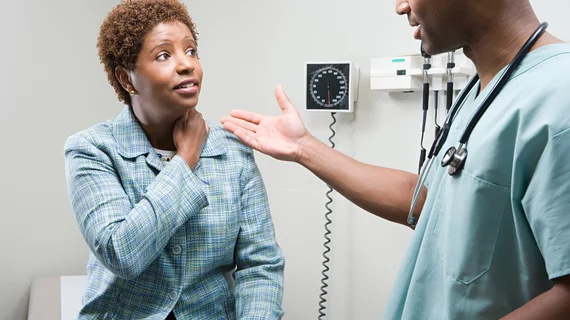Most Americans are worried about the cost of healthcare and confused about a single payer system concept, according to a new survey conducted by non-profit The Physicians Foundation.
The 2019 Survey of America’s Patients, conducted online on a biennial basis, looks at American attitudes on the physician-patient relationship, healthcare costs and drivers of health outcomes. The 2019 survey queried more than 2,000 Americans.
The findings come at a time when Americans are seeing rising deductibles and overall healthcare costs. Voters are also seeing Democratic presidential candidates offer up various healthcare plans, many of which include Medicare for all options––but there is confusion on what universal healthcare, or a single payer system, means.
Top findings
Nearly three-quarters of respondents (73%) said they are concerned about their ability to pay for medical care if they were sick or injured. Another half of Americans are worried they're just one sickness away from being in serious financial trouble. Most are also worried about costs in the future (84%), and 42% could only afford medical bills of $500 or more before they run into financial issues. Americans are split about where the blame of higher healthcare costs lie: 62% say prescription drugs and 49% point to hospital costs.
While several 2020 presidential candidates have adopted Medicare for all proposals, including Sens. Bernie Sanders (I-VT) and Elizabeth Warren (D-MA), 22% of Americans don’t even know what single payer healthcare means, according to the survey. And 77% cannot agree on one definition of the term.
“The politicians leading conversations on health reform need to do a better job explaining such policies and interacting with patients directly to gain their perspective,” the survey reads.
Medicare for all has seen national approval ratings around 50% over the last year, but 55% of Americans in the survey said they are more likely to vote for a candidate who advocates for expanding private insurance reforms.
When it comes to reforms, Americans also want more action on stemming the opioid crisis. More than one-third of Americans know someone who has abused or is addicted to opioids and 21% know someone who has died. More than half of Americans also say pharmaceutical companies are to blame, while 39% say physicians are the top problem in the crisis.
Physician-patient relationship
The survey also asked participants about their physician-patient relationship, revealing that 92% are satisfied with their relationship with their primary care physician. However, patients mostly agreed (71%) that ultimate decisions about their healthcare should be a collaboration with their physician and 65% said their doctor’s time is always limited. More than half (60%) also said their physician’s opinion should outweigh that of their insurer.
“Given the current state of the patient experience, physicians should be leading our health care system, not insurers or pharmaceutical company executives,” the report reads. “There is a clear consensus among America’s patients that physicians are guardians of quality and must be recognized as the key decision-makers for patient care.”

